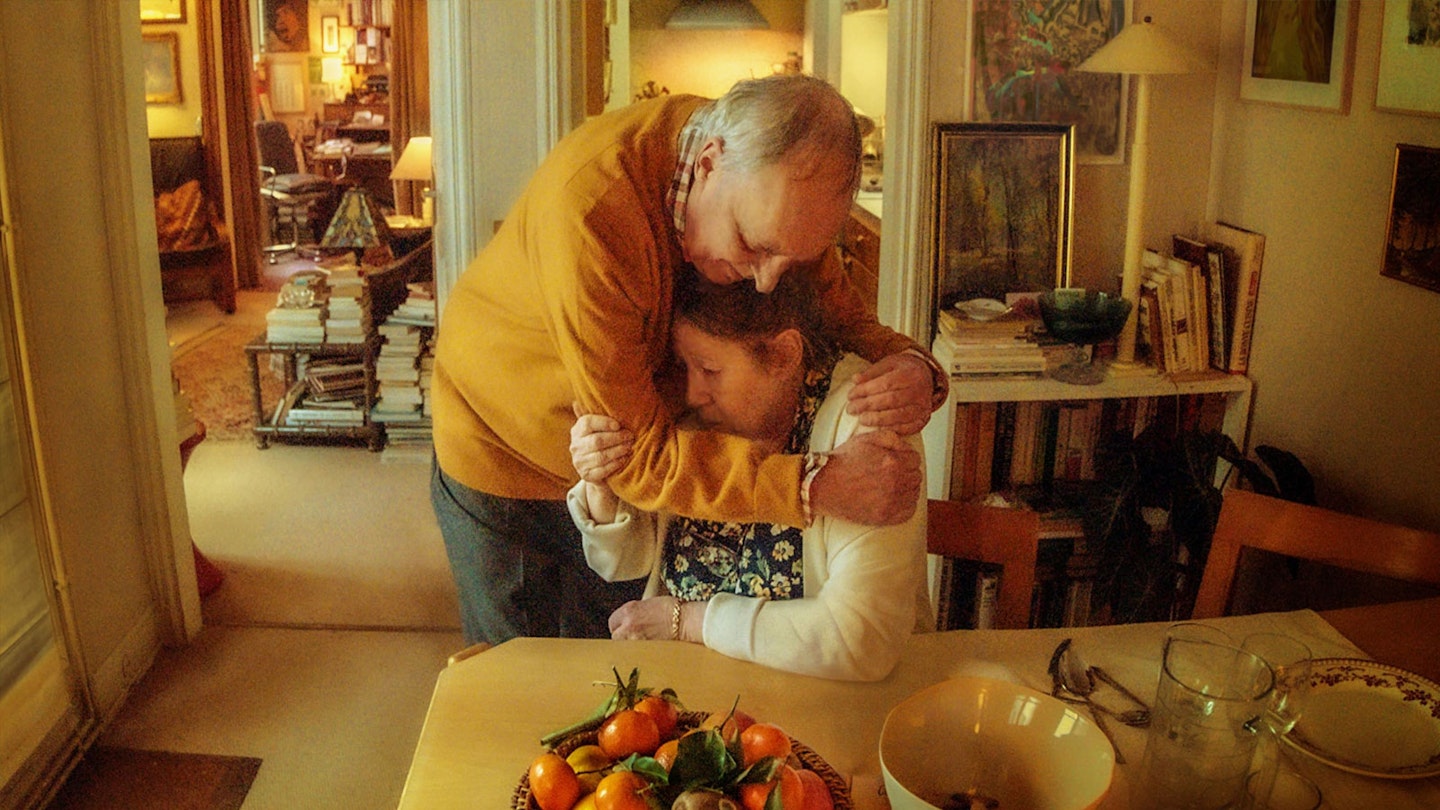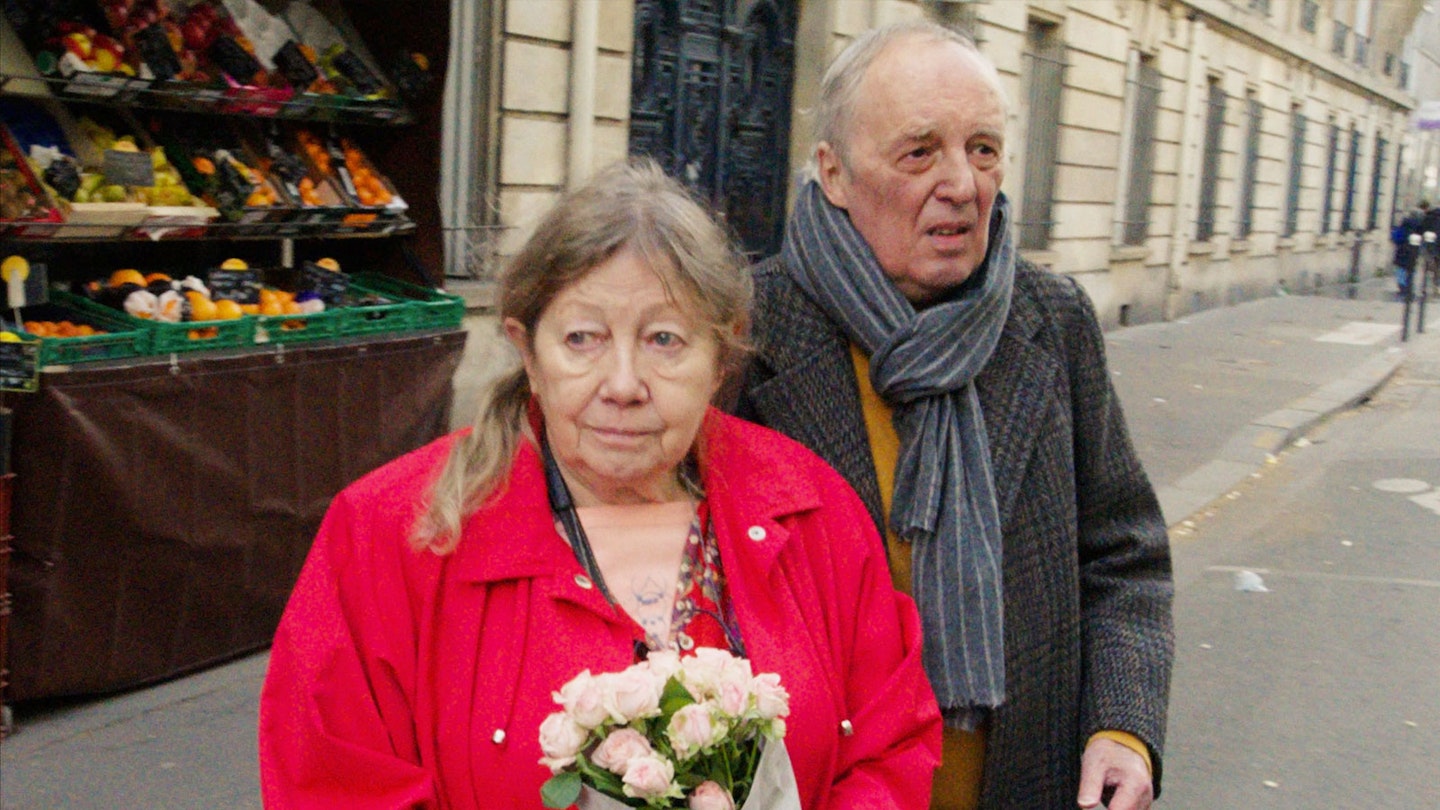Viewers familiar with the work of director Gaspar Noé, established enfant terrible and proponent of the transgressive New French Extreme style of filmmaking, may find his latest film a surprising left-turn. Ostensibly a drama about a family affected by dementia, the film explores the punishing effects of the condition and the emotional consequences of facing the mortality of a loved one. But while Vortex steers away from much of the shocking violence of Noé’s previous films, it still retains a particular kind of cold horror that burrows deep and takes hold.

An unnamed husband and wife, played by Italian genre filmmaker Dario Argento and prolific French actor Françoise Lebrun, are the focal point of Vortex. She has dementia, while he has a severe heart condition, and, despite their attempts to maintain a sense of agency and personality, their older lives have become entirely defined by these illnesses. Shuffling from room to room in their cluttered Paris apartment, a harbinger of all the lives they have managed to live, the pair go about their days separately, mostly silently, yet always connected in the way that couples who have been together for decades simply are. This is reflected in Noé’s formal choices in the film too, most clearly in his decision to split the screen in two for the majority of the runtime. A black line slithers down the middle of the screen like an ominous slime and husband and wife are presented alongside one another in individual frames, tethered yet caught in a divide.
Offers a deeply unsettling window into the helplessness of sickness.
As the film wanders through the final days in their lives, it offers a deeply unsettling window into the helplessness of sickness and the sheer anxiety of watching people who can’t support themselves. Noé is relentless in his typical way, lingering and lingering on these characters who leave the gas on by mistake, let sinks overflow, or cough so severely that the end must surely be in sight. The question with the work of a filmmaker like Noé, with such clear intentions to provoke and shock, is often whether or not the impact can be sustained and effective or whether its potency drains as the drama goes on. With Vortex, its bleak desolation is overwhelming to the point of numbness; as a viewer the only way to cope, really, is to shut down.
Still, Noé creates space for tenderness within the narrative, and the loose style of performance and dialogue allows for a familial and naturalistic tone to break through the grim circumstances. Argento and Lebrun carry the film with both a gentle fragility and a grit that stands out as a more honest, if somewhat nihilistic, depiction of death not often seen on screen. Somewhere in the midst of Noé’s exacerbated gloom lies a meaningful reflection on legacy, family and mortality, but it takes a while to unearth it.
